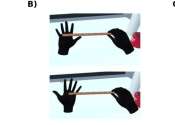AI can use human perception to help tune out noisy audio
Researchers have developed a new deep learning model that promises to significantly improve audio quality in real-world scenarios by taking advantage of a previously underutilized tool: Human perception.
Feb 7, 2024
0
61









